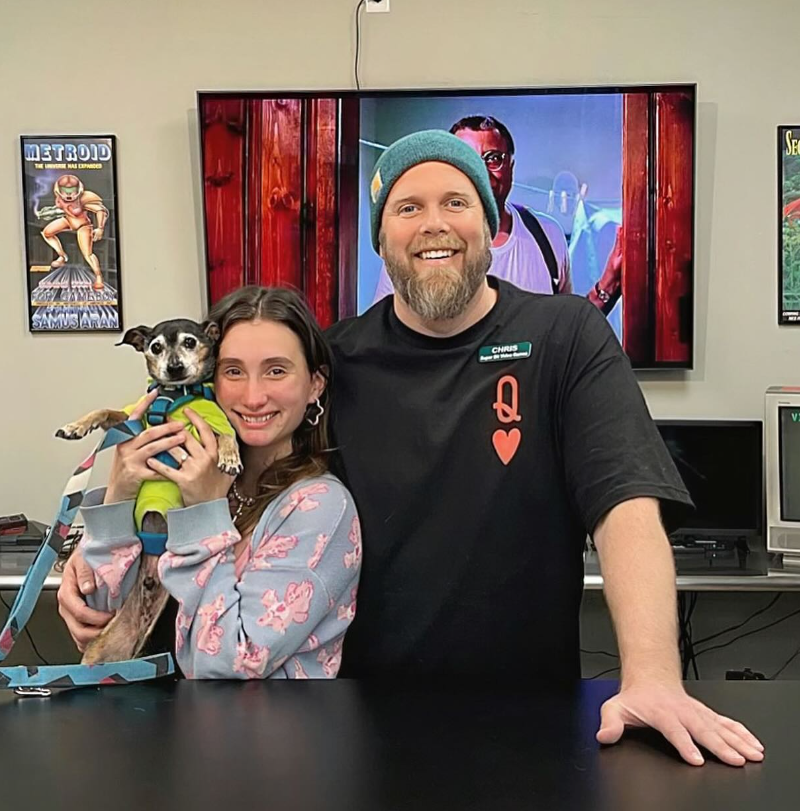Everywhere I travel, I look for a retro video game store. But when I moved to Charlottesville, I was shocked to find not a single one—especially because my hometown Richmond has several. Vinyl? Sure. Books? Tons. But vintage games were not available in C’ville.
That all changed when Super Bit came to town in November. Spun off from its initial location in Annandale, the new Seminole Square shop fills an important niche. People here want to play old games, and now it’s as easy as walking into a store.
“I would say the overall theme of Charlottesville, in my opinion, has just been people being nostalgic,” says owner Chris Jackson. “People like having a store like this and people want to support the store.”
Jackson and general manager Elizabeth Kadeli opened Super Bit in the perfect spot—its neighbors include other hobby shops, like The End Games, and Hello Comics. But since opening a second location in Charlottesville, Jackson and Kadeli have struck up friendships with store owners all over town, even partnering with SuperFly Brewing Co. for a one-night-only retro gaming lounge in February.
Retro game shops often play off of nostalgia, but not everyone comes into Super Bit looking for famous games like Super Mario Bros. 3 or Street Fighter II.
“You never know what people are gonna look for,” Jackson says. “You know, someone sees a random $7 game on the shelf that you never would have thought of, and they go, ‘Oh my gosh, this game was everything. My sister and I spent hundreds of hours playing this.’”
And sometimes, those $7 games are trapped on the cartridge or disc they shipped on—it’s the only legal way to play them. A staggering 87 percent of all classic games released in the U.S. are out of print, according to a 2023 study by the Video Game History Foundation and the Software Preservation Network. Stores like Super Bit help keep these works in circulation.
To that end, the shop is committed to physical media, especially since the transitory nature of digital downloads and streaming services means fewer and fewer people actually own the games, movies, music, and ebooks they buy.
“These companies don’t hesitate to tell you that you don’t own these things. You’re just borrowing them, but you paid for it,” says Kadeli. “There’s a certain majesty in having the physical copies of the games, or to actually have the systems because you don’t have to have that same fear.”
“There’s also a lot of people in the surrounding areas who don’t have internet access,” Kadeli adds, “but who can come and get a Genesis, an NES, all these things that don’t need the internet—you just need the system and the games, and you can play it. And you don’t need to worry about having to update anything, you don’t need to worry about any of that.”
Super Bit’s dedication to physical media means it also carries some vintage VHS tapes, board games, and toys. And while Jackson and Kadeli would like to expand into more mediums, games remain their focus. They’re committed enough to preserving the experience of playing retro games that they also sell CRT televisions, which many purists argue is the ideal way to play titles from the 1980s and ’90s.
“The further we get away from physical stuff, the more demand there is going to be for it,” says Jackson. “If you watch any kind of futuristic movie, there’s always people that collect, like, VHS players. … I think it’s gonna come full circle.”
